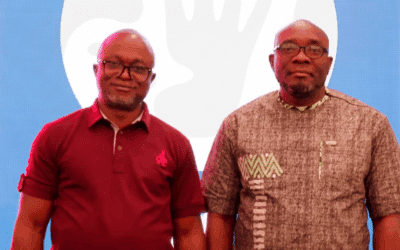What’s missing from David Keith’s climate change charm offensive
by Jim Thomas
This article was originally published by the Media Co-op.

David Keith’s preferred geoengineering scheme involves spraying sulphuric acid into the atmosphere.
Last Sunday, CBC listeners across Canada enjoyed their morning coffee and took care of a few chores around the house while the calm, mellifluous vocal cadences of Michael Enright and his guest David Keith washed over them. Keith, Enright said while introducing his guest, is a prominent and well-respected scientist, and the author of “The Case for Climate Engineering.”
Although both David Suzuki and Al Gore had branded Keith’s proposals “insane, utterly mad and delusional in the extreme” Enright took pains to reassure listeners that his guest — a Harvard professor — was perfectly sane. Enright was kinder to Keith
than Stephen Colbert had been a few months previous, and so unfortunately avoided a number of tough questions.
Climate Geoengineering is the process of attempting to counteract climate change by large-scale methods other than reducing carbon emissions. These include spraying tonnes of sulphuric acid into the atmosphere (Keith’s preferred option), mounting giant space mirrors to reflect sunlight and slow its warming effects, dumping tonnes of iron filings into the ocean to stimulate plankton growth, and sucking carbon out of the atmosphere with giant fans.
These measures have been opposed both because of their unpredictable effects and the fact that they give an excuse to rich countries to continue to increase carbon emissions on the basis of trumped-up techno-promises. In the same breath, Keith acknowledges and dismisses these criticisms.
Environmentalists who oppose geoengineering, Keith told Enright, are “more committed to their answer to the problem than really thinking in what I feel is a morally clear way about what our duties are to this generation and reducing the risks that they feel.”
Keith made the case for geoengineering, but he also made the case that those who oppose geoengineering are doing so because they have priorities other than slowing down the effects climate change. He aligned geoengineering with concerns about “how we want to leave the planet for our great-grandkids.” He took the time to talk about kayaking trips, and how he was motivated by a love of the natural world.
Keith didn’t take the time to mention a few other details. For those who are skeptical about Keith’s case for geoengineering, here are five things that Keith didn’t mention, and Enright kindly didn’t bring up.
1. David Keith runs a geoengineering company funded by tar sands money
In addition to being an author and a professor, David Keith
heads up Carbon Engineering, a Calgary-based startup that is developing air-capture technologies for removing carbon dioxide from the atmosphere. The company is
funded by Bill Gates, who is also a geoengineering proponent, and by
N. Murray Edwards, an Alberta billionaire who made his fortune in oil and gas. Edwards is said to be the largest individual investor in the tar sands, and is on the board of Canadian Natural Resources Limited, a major tar sands extraction company. Carbon Engineering hopes to sell the carbon dioxide it extracts to oil companies to help in Enhanced Oil Recovery (EOR)- a technique for squeezing more fossil fuels out of the ground which will in turn be burnt to produce more atmospheric carbon.
2. The geoengineering that Keith proposes could be disastrous for the Global South
A study of the likely effects of one of the methods Keith is promoting, spraying sulphuric acid into the atmosphere with the aim of reflecting sunlight could cause “calamitous drought” in the
Sahel region of Africa. Home to 100 million people, the Sahel is Africa’s poorest region. Previous droughts have been
devastating. A 20-year dry period ending in 1990 claimed 250,000 lives. Other models predict possible monsoon failure in South Asia or impacts on Mexico and Brazil, depending where you spray the sulphur.
3. Keith’s geoengineering proposals are deeply aligned with the financial interests of the fossil fuel industry
If oil, natural gas and coal companies can’t extract the fossil fuels that they say they’re going to extract, they stand to lose
trillions of dollars in stock value, $2 trillion in annual subsidies, and about $55 trillion in infrastructure. David Keith’s enthusiasm for geoengineering plays to the commercial interests of these companies whose share value depends on their ability to convince investors that they can continue to take the coal out of the hole and the oil out of the soil. This may be why fossil-sponsored neoconservative think tanks such as the American Enterprise Institute and the Heartland Institute have been so gung-ho for geoengineering research and development along exactly the lines that David Keith proposes. For example there is very little difference between what Keith proposes and what the American Enterprise Institute’s Geoengineering project calls for.
4. Climate scientists just issued a new round of criticisms of geoengineering
In the
most recent report of Working Group II of the Intergovernmental Panel on Climate Change (IPCC), released before Keith’s interview aired, climate scientists loosed a new salvo of problems with various geoengineering schemes. “Geoengineering,” according to the report, “poses widespread risks to society and ecosystems.” In some models, Solar Radiation Management (SRM) — what Keith is pitching — “leads to ozone depletion and reduces precipitation.” And if SRM measures are started and then stopped for whatever reason, it creates a risk of ”rapid climate change.”
5. There’s already a widely-backed moratorium on geoengineering
While David Keith discussed possible ways of governing geoengineering internationally he failed to mention that at least one UN convention was already dealing with the topic. The
broadest decision yet on geoengineering, a 193-country consensus reached at the UN Convention on Biodiversity specifies that unless certain criteria are met, “no climate-related geo-engineering activities that may affect biodiversity take place.” The moratorium is to remain in effect until geoengineering’s impacts on biodiversity and livelihood are analyzed, scientific evaluation is possible, and “science based, global, transparent and effective control and regulatory mechanisms” exist.
In the interview, Keith said outright that he wants to bypass such a system. He considers the input of Africa and South America, and much of Europe and Asia as unnecessary in order to move forward with a geoengineering scheme. It would be enough, he told Enright, to gain the agreement of a small but powerful “countries with democratic institutions,” citing China as an example, along with the US and the European Union. David Keith has been recognized for his achievements in applied physics, but when it comes to political science, it may be time for him to hit the books.
Jim Thomas is a Research Programme Manager and Writer at ETC Group.



